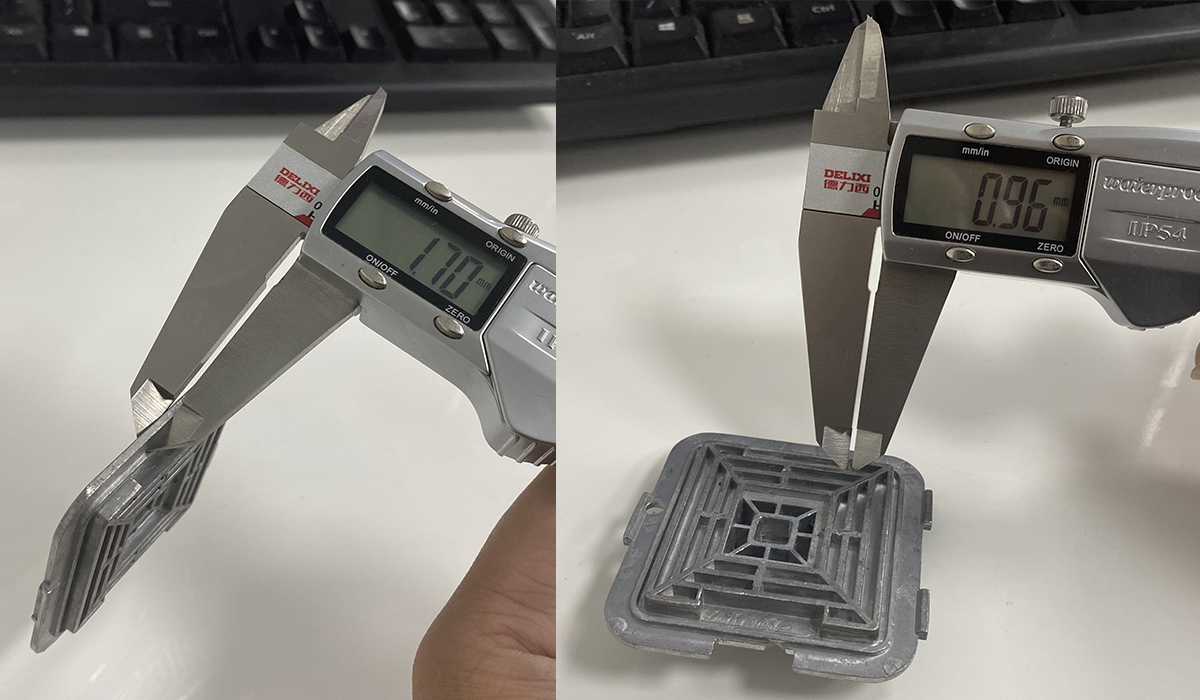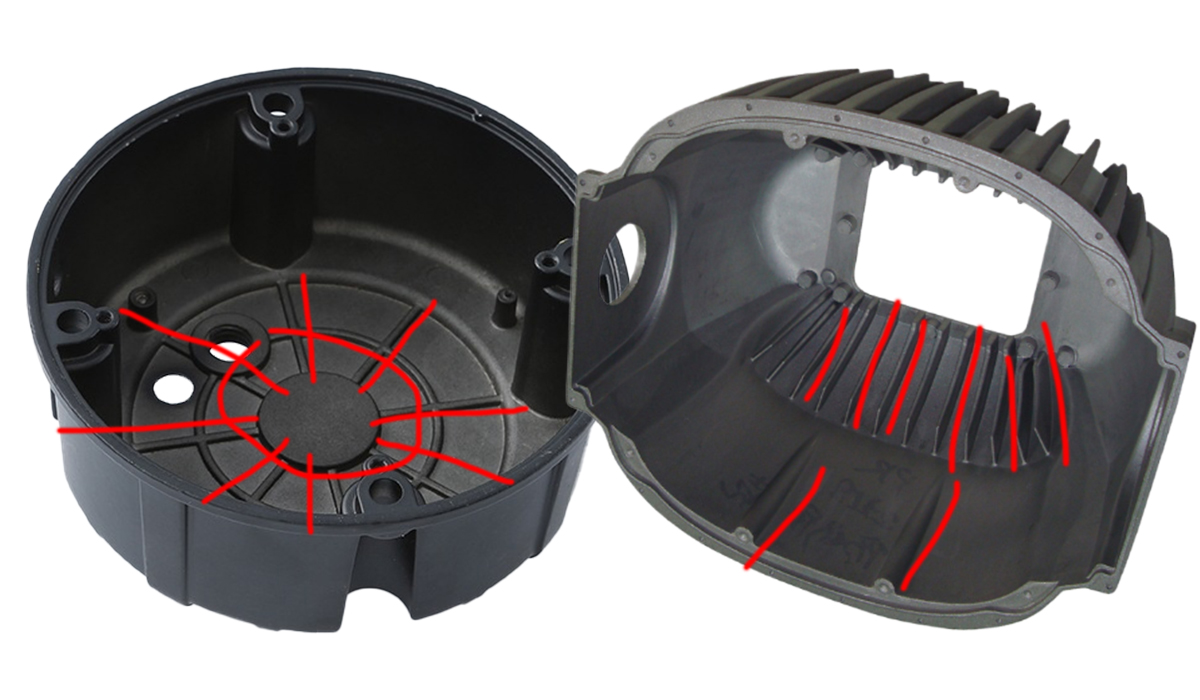The minimum wall thickness of aluminum die castings is not a fixed value. Still, it is comprehensively affected by many factors, including the complexity of the casting, size, and die-casting materials. Generally, the minimum wall thickness of aluminum die castings is 0.5 millimeters to 2 millimeters. The following content will elaborate on different aspects to provide more detailed references.

1. Mobile phone case. Its side length is usually within a dozen centimeters. The wall thickness is generally between 0.5 millimeters and 1 millimeter.
2.The metal casing of an outdoor wireless base station is about 200 - 400 millimeters in length. The wall thickness selection must comprehensively consider factors such as structural strength, protection performance, heat dissipation requirements, and cost. Generally speaking, a wall thickness of 2.5 millimeters to 4 millimeters is more appropriate for this casing.
The housing of a new energy vehicle motor controller usually has a length between 300 - 600mm. The wall thickness is generally between 2 - 5 millimeters. This wall thickness is affected by multiple factors. From the structural design perspective, if the housing is simple and regular and the external stress it is subjected to is minor, the wall thickness may be 2 - 3 millimeters. If the structure is complex, it is about 3 - 4 millimeters. The wall thickness of a housing with a heat dissipation structure is usually 3 - 4.5 millimeters.
The power battery pack case is generally 1000 - 2000mm in length.
1.For the battery pack case of small cars or light electric vehicles with small battery capacity and low internal pressure and external stress, the thickness of the die casting aluminum housing is 2 - 3mm.
2.For SUVs, medium to large cars, and electric trucks with large battery capacity, in order to resist collisions and vibrations and protect the battery, the thickness of the die-cast aluminum shell is 3 - 4mm.
In die-cast aluminum alloy enclosures, the minimum wall thickness at the following specific locations requires special attention.

At corners, due to stress concentration, special attention needs to be paid to the wall thickness. If it is too thin, it is easy to cause die-casting defects and subsequent cracking. Generally, it is recommended that the minimum wall thickness at corners be between 0.8mm and 1.2mm.
The design of ribs is aimed at enhancing the strength and rigidity of the enclosure. The wall thickness needs to be moderate. If it is too thick, it is easy to cause die-casting defects such as shrinkage cavities and porosity. If it is too thin, the effect will be poor. Generally, it is recommended that the wall thickness of ribs be between 0.6 and 1mm.
The design around mounting holes must ensure sufficient wall thickness to withstand the stress generated during installation and use. Generally speaking, it is recommended that the minimum wall thickness in this area be maintained between 0.7 and 1mm. For larger-diameter mounting holes or where additional tensile force is applied through threaded connections, etc., the wall thickness should be increased correspondingly to more than 1mm to ensure structural strength and stability.
Edge areas are prone to collisions and friction. A certain wall thickness is needed to enhance strength and wear resistance. Usually, the wall thickness is between 0.6 and 0.9mm. If special treatments such as rounding corners or knurling are required, the wall thickness should be increased to 0.9mm or thicker to prevent deformation and damage and ensure sufficient strength after treatment.
In conclusion, the minimum wall thickness of aluminum die casting varies greatly depending on the size and complexity of the casting as well as different specific parts. In practical applications, factors such as structural strength, protection performance, heat dissipation requirements, and cost must be comprehensively considered to determine the appropriate wall thickness. The wall thickness is relatively thin for small aluminum die castings, such as mobile phone cases. In contrast, for medium and large aluminum die castings, such as the housing of new energy vehicle motor controllers and power battery pack cases, the wall thickness increases according to specific circumstances. At particular parts such as corners, ribbed areas, around mounting holes, and edge areas, special attention also needs to be paid according to their stress concentration and functional requirements to ensure that the minimum wall thickness can meet the actual use requirements, thus ensuring the quality and performance of aluminum die castings.
Copyright © 2023 :Guangdong Shine-Choose Smart Manufacturing Co., Ltd